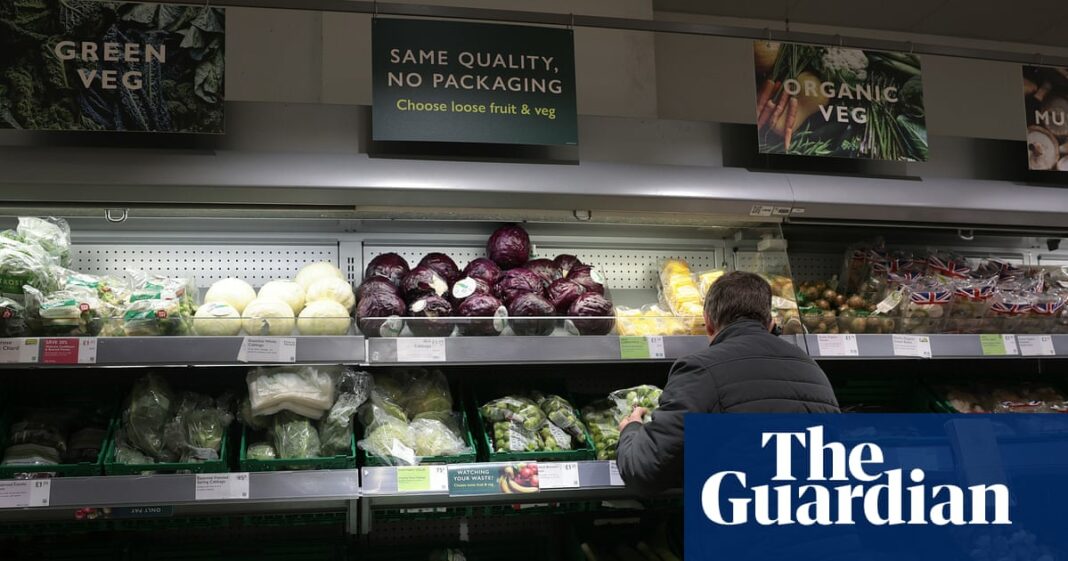Harvests are coming two weeks early because of drought, Waitrose has said, as it prepares to stock autumnal fruit in summer.
Farmers that supply the supermarket are harvesting wheat, oilseed rape, oats and malting barley a fortnight before they generally would, according to the supermarket. A lack of rainfall coupled with the hot weather has caused the crops to race through their growing stages and mature early.
Data from the Environment Agency released on Thursday revealed that 80% of England’s river flows were below normal, and continue to drop.
Rainfall has been scarce, with England as a whole receiving 1mm of rain as a whole so far in August. South-east England is particularly dry: it has received just 2mm of rainfall, which is 3% of the long-term average (LTA) for the month as a whole. England has received just 14% (10mm) of August’s LTA after 19 days.
Thomas Adami, the farming operations manager at Leckford Farm, one of the suppliers, said: “The drought conditions meant that the plants were stressed, and in reaction to this they raced through their growth stages to produce their seed before they senesce, hence the earlier harvest.”
His team had managed to mitigate some of the worst drought effects as they had been practising regenerative farming, he said, which meant the soil had been kept in better condition and held water for longer.
Adami said: “As we are increasing the organic matter content of our soils through our farming practices (cover crops, integrating livestock, minimising disturbance, etc), we are seeing that our soils have a higher water-holding capacity, which helps our resilience to drought extremes. An increase in 1% soil organic matter leads to an increase of 168,000 litres extra water holding per hectare available to the crops.”
Waitrose said it expected apples and berries to be on shelves up to two weeks early. Jessica Street, an apple buyer with the supermarket, said: “We’ve got an early start to the apple season this year, all thanks to ideal spring conditions and a warm temperature throughout the growing season accelerating the ripening process for many fruits, like apples.”
But although apples have benefited from the weather, for vegetables that require a lot of water, such as carrots, potatoes and brassicas, the situation is bleak. The Met Office is on track to record one of the warmest summers since 1884, and England had its driest spring on record, with some areas of the country facing an extremely dry summer.
Rachel Hallos, the vice-president of the National Farmers’ Union, said: “The increasing extreme weather we are experiencing is impacting our ability to produce food, which will have substantial financial consequences on farm businesses. Last year’s harvest was marked by heavy rain; this year, it’s the lack of it. These fluctuations of drought and flood are becoming more pronounced and more regular.
“Farmers and growers need investment in climate adaptation and resilient crop varieties to safeguard our ability to feed the nation, weather market volatility and adapt to a changing climate. We also need investment in water infrastructure across the wider farming sector and planning reforms that allow us to better capture and store in times of plenty for use when it’s needed.”
after newsletter promotion
Broccoli farmers have reported that their yields have been cut by more than 50% so far, and shoppers have been told to expect smaller vegetables. The British Growers Association has said supplies of brassicas are tight.
The Energy and Climate Intelligence Unit has said the UK is tracking towards its sixth- or seventh-worst harvest since records began 40 years ago. This comes after the second-worst harvest last year, which was partly due to record-breaking floods, and the worst harvest on record in 2020. This is the sixth consecutive month of below-average rainfall.
England is in a nationally significant water shortfall, with conditions expected to last until mid autumn. Dry conditions could last well into October, the UK Centre for Ecology and Hydrology has said, which would put higher pressure on water supplies, as rivers, reservoirs and aquifers are at very low points.
Five areas of England are in drought: Yorkshire; Cumbria and Lancashire; Greater Manchester, Merseyside and Cheshire; East Midlands; and West Midlands.



